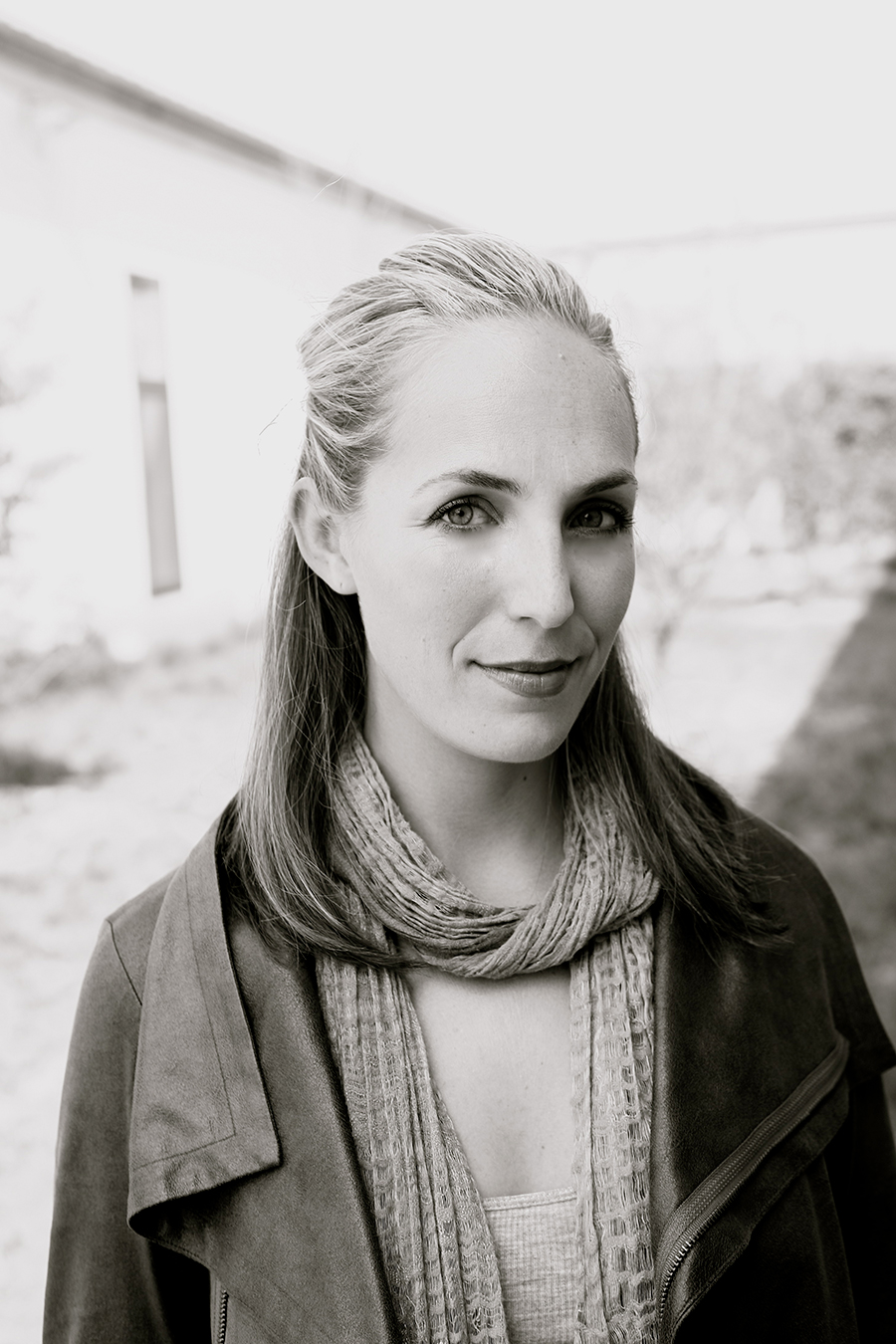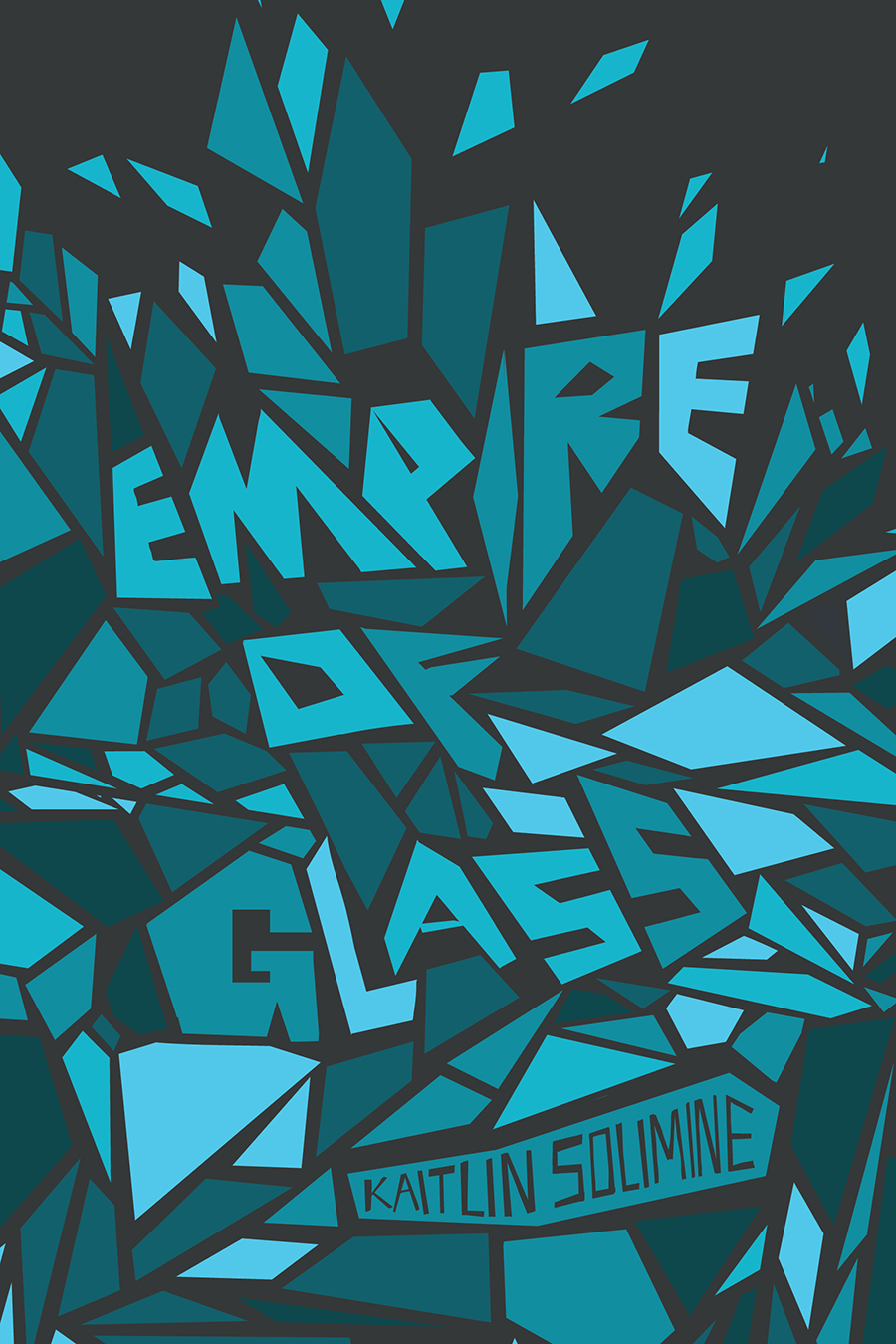
UC San Diego Literature Department Excellence Reflected in Alumna’s First Novel
Published Date
By:
- Cynthia Dillon
Share This:
Article Content

Kaitlin Solimine. Photo courtesy of Kaitlin Solimine
The University of California San Diego Department of Literature ranks among the best in the nation for creative writing. Alumna Kaitlin Solimine’s (MFA, ’11) “Empire of Glass” demonstrates that excellence with its inclusion on The Center for Fiction's 2017 First Novel Prize long list. Her premier novel, which emerged from her MFA thesis, is an investigation into the workings of human memory and the veracity of oral history that pushes the boundaries between language and form in profound ways.
Described as “a grand experimental epic,” the story is about an American teenager in the mid-1990s named Lao K, who is contemplating whether or not to help her dying mother, Li-Ming, end her life. Fast-forward 20 years, and Lao K receives a book written by Li-Ming called “Empire of Glass,” a narrative that chronicles the lives of Li-Ming and her husband, Wang, in pre- and post-revolutionary China over the last half of the 20th century. As Lao K translates the story — which becomes the novel readers see — she must separate fact from fiction and determine her role in the book’s ending. The story prompts readers to question their own complicity in history’s writing and re-writing, as well as their relationship to inherited stories and culture.
“You never know exactly how the world will meet a piece of writing — what conversations it will inspire or with whom it will resonate,” said Solimine, who admitted her surprise and honor that the novel was recently named to The Center for Fiction’s long list.

Book cover for “Empire of Glass.” Photo courtesy of Kaitlin Solimine
Solimine’s inspiration for writing “Empire of Glass” sprang from the exposure to experimental writers she experienced during the course of her creative writing graduate work at UC San Diego. At first, she came into the program with a complete manuscript titled “The Soap Tree,” thinking it would be the final draft of what is now her recognized novel. But, amidst what she describes as the supportive and nurturing environment of the MFA program, Solimine learned more about writing fiction and literature in general. At the same time, the program’s experimentation in literary form and function exposed her to the work of poets and to literature that she might not have read otherwise. This ultimately resulted in dramatic changes to the structure of her novel.
“When I started classes with my fellow students and professor Sarah Shun-lien Bynum, I was writing an entirely new novel,” noted Solimine. “But as the year went on, and as the program exposed me to experimental writers, I was inspired to return to the old draft and rework it with some of the new literary devices I’d studied in mind.”
For example, Solimine experimented with visual elements on the page — how Chinese characters look to Westerners and the philosophical significance of the letter “O” to the characters. This approach prompted her to change the story’s title to “Empire of Glass.” Workshops she attended on campus exposed her to writers like Djuna Barnes, Bhanu Kapil and Mark Danielewski. Literature professor Anna Joy Springer’s work was a key resource for writing that pushes past traditional literary boundaries. And, Solimine said her classmates of diverse poets and fiction writers who were able to see her draft with fresh eyes provided insights.
“I’m grateful the novel has found a form with which to connect with readers,” conveyed Solimine shortly after her first book tour, admitting that publishing a book is exciting but also anxiety-inducing. “Now that the book is out there, it’s humbling to meet readers who have come to my work randomly and who feel compelled to share the book with others as they’ve connected with the writing.”
As a UC San Diego student, Solimine traveled to Australia with the help of a University of California grant to present at a writing conference and connect with a new community of writers and academics — an experience she still appreciates. She also taught for the Muir College Writing Program, which expanded her understanding of critical writing and pedagogy, and enabled her to build a teaching career after graduating. The advice she gives to students is to take advantage of the rich diversity of courses and programs on campus.
“Don’t be afraid to ask for assistance in pursuing academically enriching experiences. I found that faculty and deans alike were always very receptive in finding ways to help with funding or other non-material support when it came to attending or organizing academic conferences, programs and more,” she said. “Also, a walk on the gorgeous La Jolla beach is always a great way to clear one’s head and de-stress.”
The UC San Diego Department of Literature was recently ranked #6 in the nation by College Choice for its MFA program in creative writing. The department resides within the Division of Arts and Humanities, which ranks #23, according to U.S. News & World Report’s 2017 Best Global Universities.
Share This:
You May Also Like
Stay in the Know
Keep up with all the latest from UC San Diego. Subscribe to the newsletter today.


